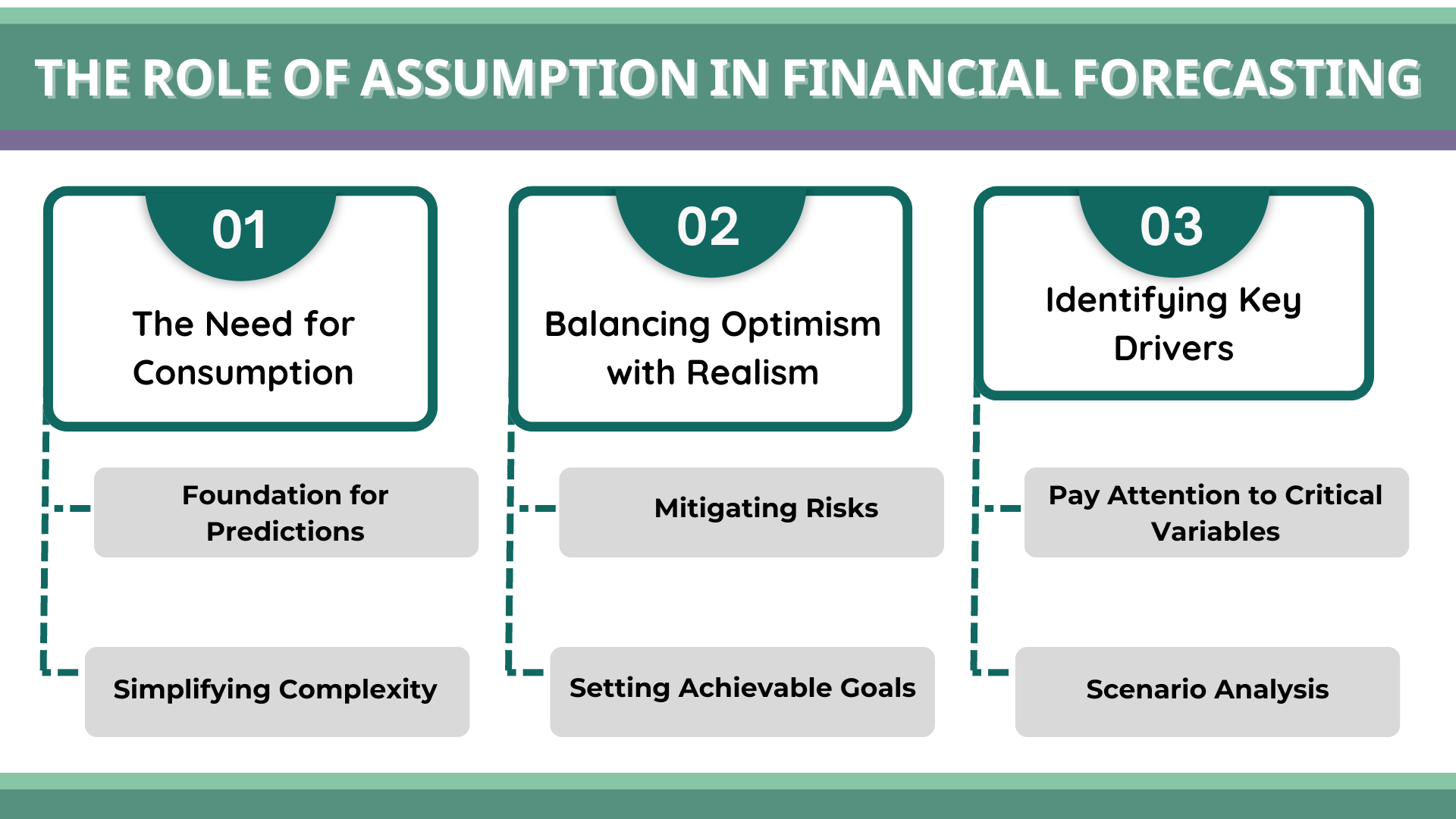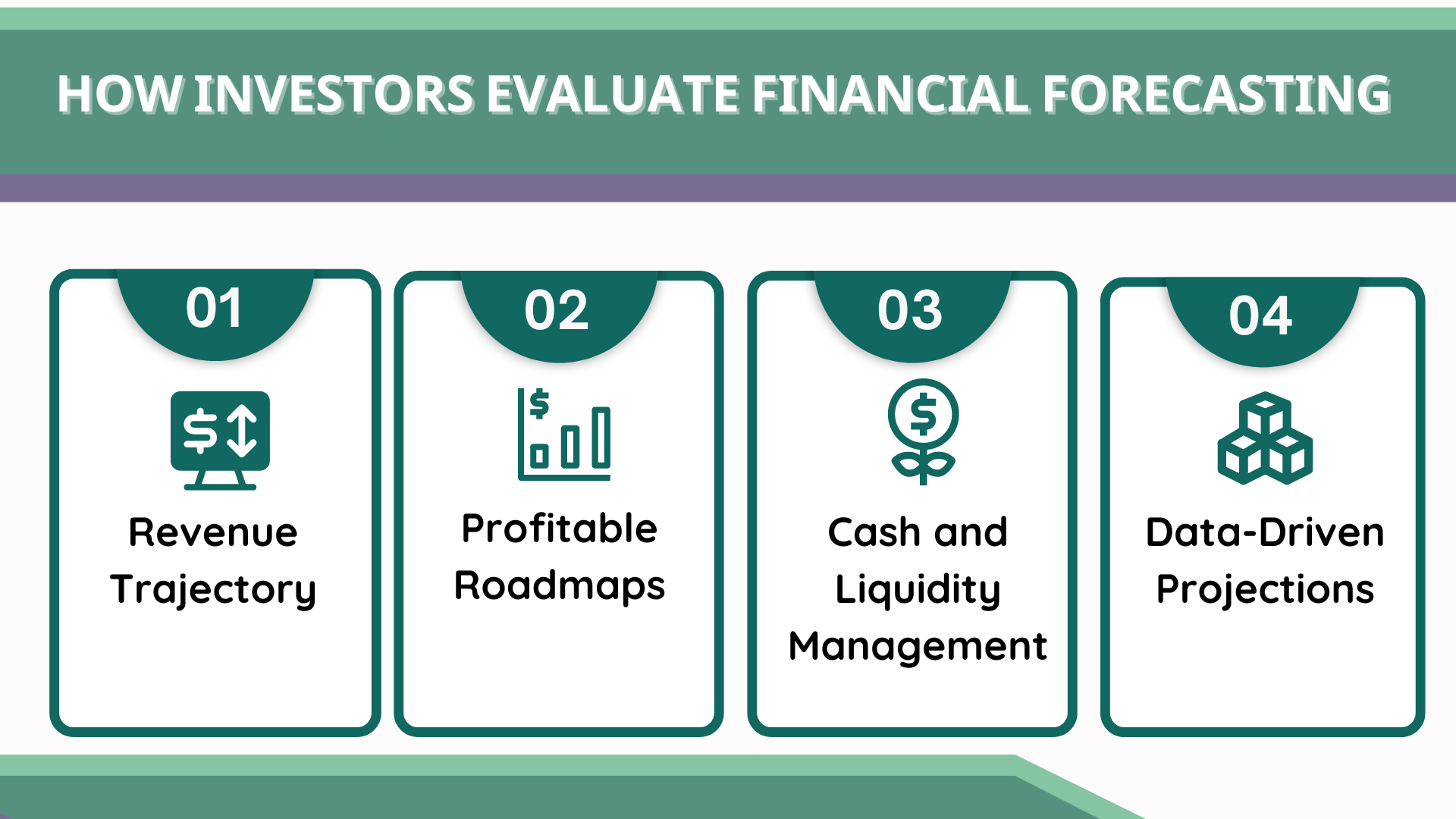Financial Forecasting For Startups: A Key For Enduring Success
 Emma Jones
Emma Jones
Why Financial Forecasting is Essential for Startups
Financial forecasting is crucial for any startup for a variety of reasons. Typically, they are employed to draw in investors or submit an application for a better bank loan. Since obtaining a substantial cash investment is a primary goal for each business, it can only be achieved through investors or, in more cases, banks.
However, there are three primary reasons why a startup needs financing projects:
1) Guiding Business Strategy
Any start-up that wants to expand must have an effective plan before entering the market. Financial predictions play a crucial role in giving companies a clear road map so they can prioritize their efforts and set realistic goals. Startups can make well-informed decisions on product development, market expansion, and resource allocation by projecting their predicted revenues and expenses.
2) Bringing Investors:
Providing accurate financial estimates is essential to gaining the trust of lenders, investors, and other stakeholders. They facilitate raising capital and business alliances by showcasing a startup's potential for growth and profitability.
3) Scenario Planning and Risk Management
Although risks are inevitable in business, it's crucial to control them, particularly for new businesses. Many emerging businesses have failed due to risk aversion.
A variety of financial scenarios have been created to assist businesses in preparing for a range of outcomes, from the best-case to the worst-case. With this proactive strategy, entrepreneurs may efficiently adjust their plans, reducing risks and seizing opportunities as they arise.
The Role of Assumption in Financial Forecasting

1) Considering the Need for Consumption
- Foundation for Predictions:
Assumptions give financial forecasting its foundation by establishing the boundaries for its economic outlook. They provide insights into revenue, expenses, and cash flow to companies and assist in building models that mimic prospective future scenarios.
- Simplifying Complexity
Assumptions help reduce the complexities of the many variables involved in financial forecasting by concentrating on the main drivers. This enables startup companies to control uncertainty and produce projections that are easier to understand and manage.
2. Balancing Optimism with Realism
- Mitigating Risks
Predictions that strike a balance between realism and optimism prevent being either optimistic or too pessimistic. Making realistic assumptions lowers the chance of unforeseen financial shortfalls by assisting in anticipating difficulties and planning for a range of outcomes.
- Setting Achievable Goals
Setting attainable financial goals is made easier by realistic assumptions, and these goals are essential for preserving investor trust and directing strategic decision-making. This equilibrium aids in keeping startups motivated and ready for real-world obstacles.
3. Identifying Key Drivers
- Pay Attention to Critical Variables
Startups can make more accurate estimates by identifying and focusing on key factors of financial performance, such as revenue growth rates and expenditures associated with acquiring new customers. Understanding these pivotal elements will enable to enhance resource allocation and forecasting.
- Scenario Analysis
By exploring different scenarios based on varying assumptions, startups can evaluate how changes in key drivers impact financial outcomes. This approach helps in preparing for a range of possible futures and supports more resilient planning.
How Investors Evaluate Financial Forecasting
Investors meticulously analyze financial forecasts to determine a startup’s potential for success and sustainability. Here are vital aspects they consider:

1) Revenue Trajectory
Revenue Growth: An investor's top priority is to understand the startup's projected revenue growth. They look for detailed strategies on how the startup intends to scale its sales and the market trends that will support this expansion.
2) Profitable Roadmaps
Even if immediate profitability isn't expected, investors want a clear path to it. It's critical to comprehend how and when a firm intends to turn a profit. They carefully examine cost structures and initiatives that, over time, will result in a substantial profit margin.
3) Cash and Liquidity Management
A startup needs to manage its cash flow well to survive. Investors examine estimates of cash flow to ensure the company can continue operating and handle unforeseen costs without experiencing financial hardship.
4) Data-Driven Projections
Investors highly value forecasts based on credible data and reasonable assumptions. They want extensive research that considers potential risks and mitigating factors and steer clear of overly rosy projections.
Conclusion
Financial forecasting is more than just figures—it’s a strategic tool that captures your vision, strategy, and dedication to creating a successful organization. Startups must leverage this tool to set realistic goals, anticipate challenges, and make informed decisions.
Investors ultimately evaluate these forecasts to understand revenue trajectories, profitability plans, and cash management strategies. Therefore, startups must invest in these financial projections and Hire data analysts to ensure data-driven, precise, and credible forecasting that can drive sustainable growth and secure the necessary funding. Effective Financial Forecasting for Startups will become a North Star towards the growth and opportunities.
Subscribe to my newsletter
Read articles from Emma Jones directly inside your inbox. Subscribe to the newsletter, and don't miss out.
Written by

Emma Jones
Emma Jones
Hello All! I am Emma a tech consultant from Boston, and I am not as rich as you think. I just love to write about tech, and I have been doing this for five years. I love to empower people and inform them about different technologies and market trends. Yet, I like to make networking and connections. I don't eat health food, and only love to watch movies.